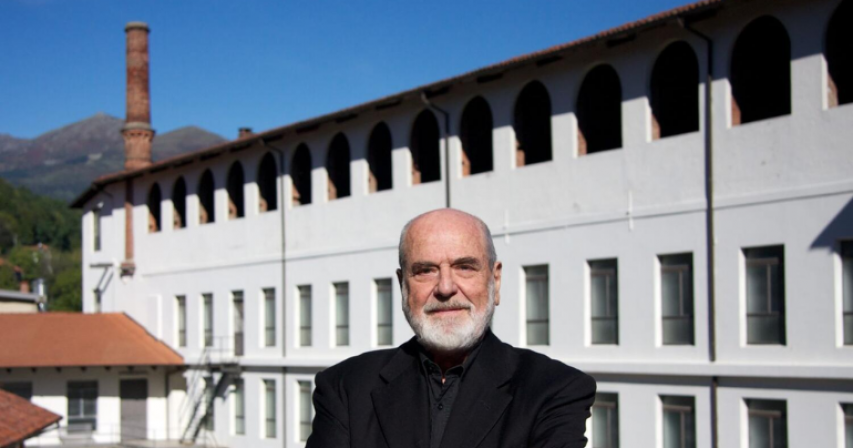Eternal Reflections: Pistoletto's Mirror Art in Dubai

Michelangelo Pistoletto, the 90-year-old Italian painter, action, and object artist, reflects on the multiculturalism of the UAE. Pistoletto, renowned for his works in Pop Art and the Arte Povera conceptual art movement, presents his solo exhibition, 'Judgement Time,' at the Burj Al Arab in Dubai. The exhibition, running until January 7, features mirror works that invite viewer interaction, creating a virtual experience symbolizing infinity and humanity.
In an interview, Pistoletto shares insights into his art, particularly focusing on the 'Judgement Time' installation. This work employs mirrors to converge the four great monotheistic religions – Islam, Christianity, Judaism, and Buddhism – reflecting on the idea of self-judgment. Pistoletto explains that the concept of judgment is not confined to a specific day but is a continuous reflection on oneself.
The artist chose to showcase this specific work in Dubai due to the city's cultural significance, citing the One World Religion Headquarters in Abu Dhabi as a symbol of interfaith harmony. Pistoletto emphasizes the role of the UAE in promoting tolerance, coexistence, and communication between various nationalities and religions.
Reflecting on his artistic journey, Pistoletto discusses his early engagement with self-portraiture and mirror paintings. The mirror, for him, represents identity and the discovery of the world through reflection. His mirror works, a blend of pop art and objective reality, convey the symbolic meaning of mirrors, using the mathematical symbol of infinity to encapsulate the universe's elements.
Discussing the relevance of his mirror paintings to contemporary society, Pistoletto acknowledges the prevalence of selfies as a form of self-recognition but warns against falling into the trap of narcissism. He draws a parallel between the dangers of technology-induced narcissism and the myth of Narcissus, cautioning against becoming enamored with virtual reflections.
Pistoletto's artistic journey also involves rejecting an invitation to move to the United States in the 1960s, choosing instead to stay in Italy and contribute to the birth of Arte Povera. He defines himself as an exponent of Arte Povera, pop art, and street theatre actions. His recent book, 'The Formula of Creation,' outlines 31 steps, depicting life as a continuous walk with transformative moments at every step.
Symbolism plays a significant role in Pistoletto's art, with words, hours, and kilometers all seen as symbols. He views symbols as flags, representing political parties, states, and religions. Exploring utopian elements in his art, Pistoletto describes utopia as a necessary step that arises from criticism, leading to the planning phase for implementation.
The interview concludes with Pistoletto's reflections on the vandalism of his artwork, the Venus of Rags, in Naples. He sees his Venus of Rags as a representation of duality, combining endless beauty and continuous degradation, mirroring the dichotomy of reason and emotion. The artist reveals plans for a new Venus of Rags installation in the original site.
In essence, Pistoletto's interview offers profound insights into his art, philosophy, and reflections on societal dynamics, emphasizing the timeless themes of self-judgment, tolerance, and the transformative power of art.
For More Related Updates Please Visit Our Official Website
By- Sahiba Suri






Comments